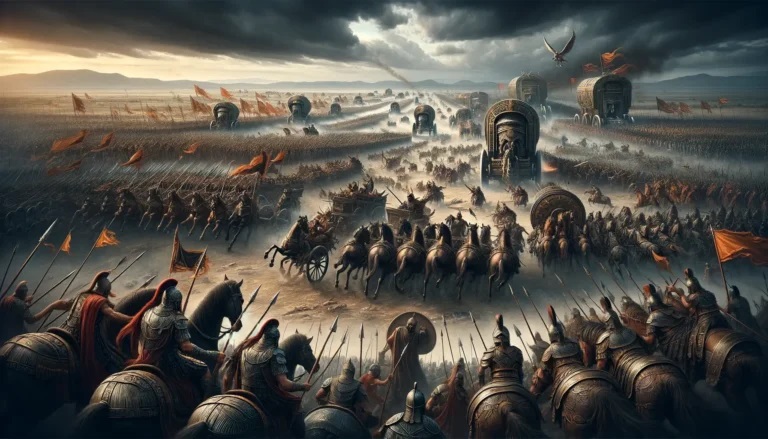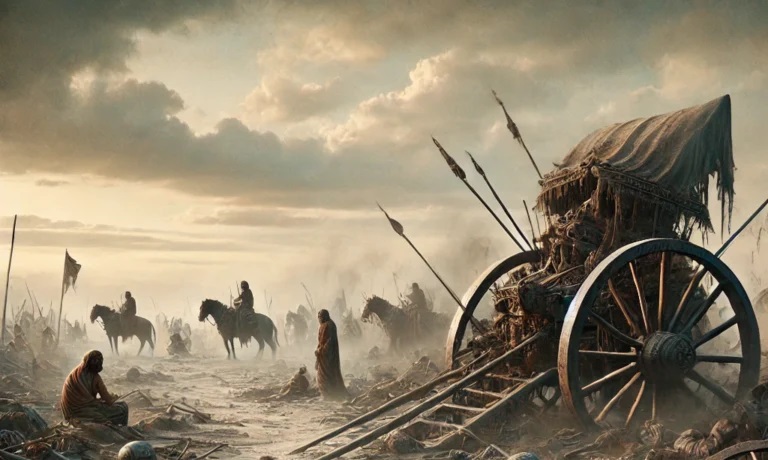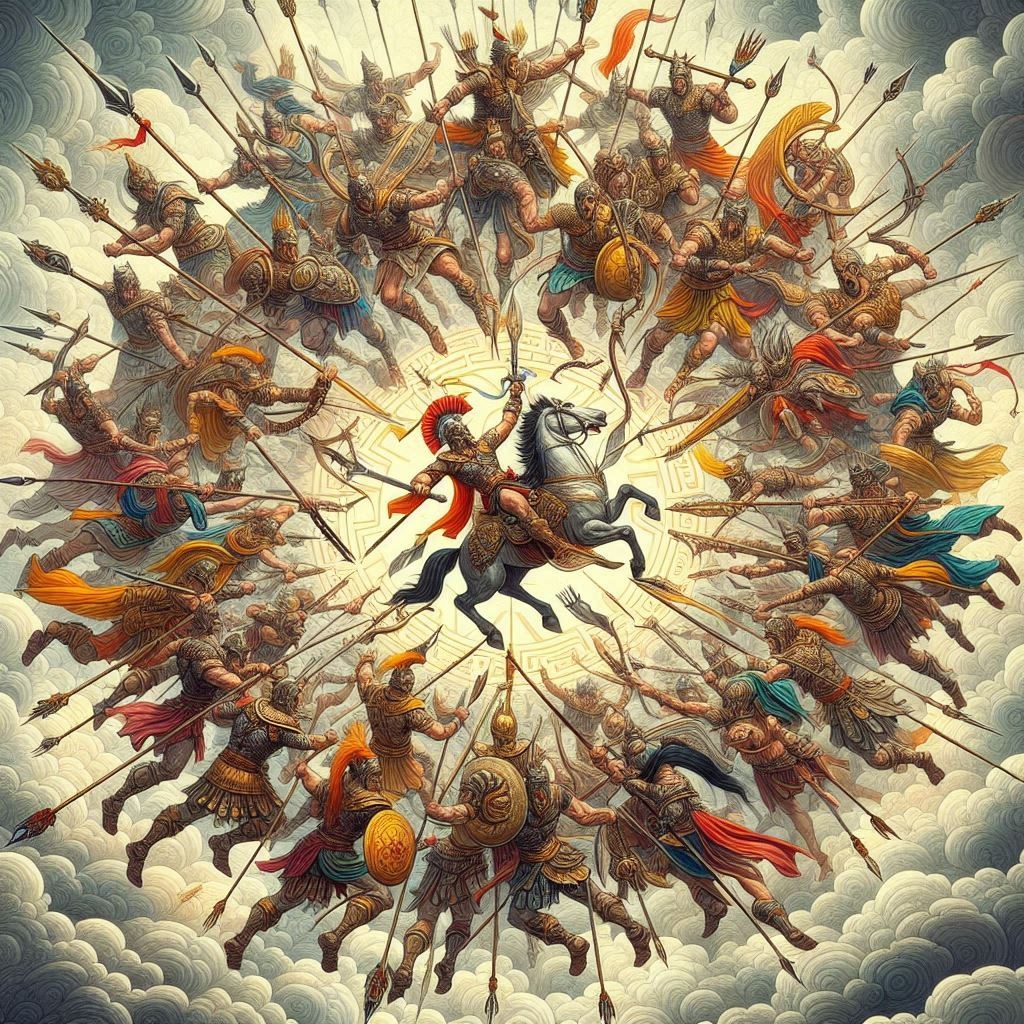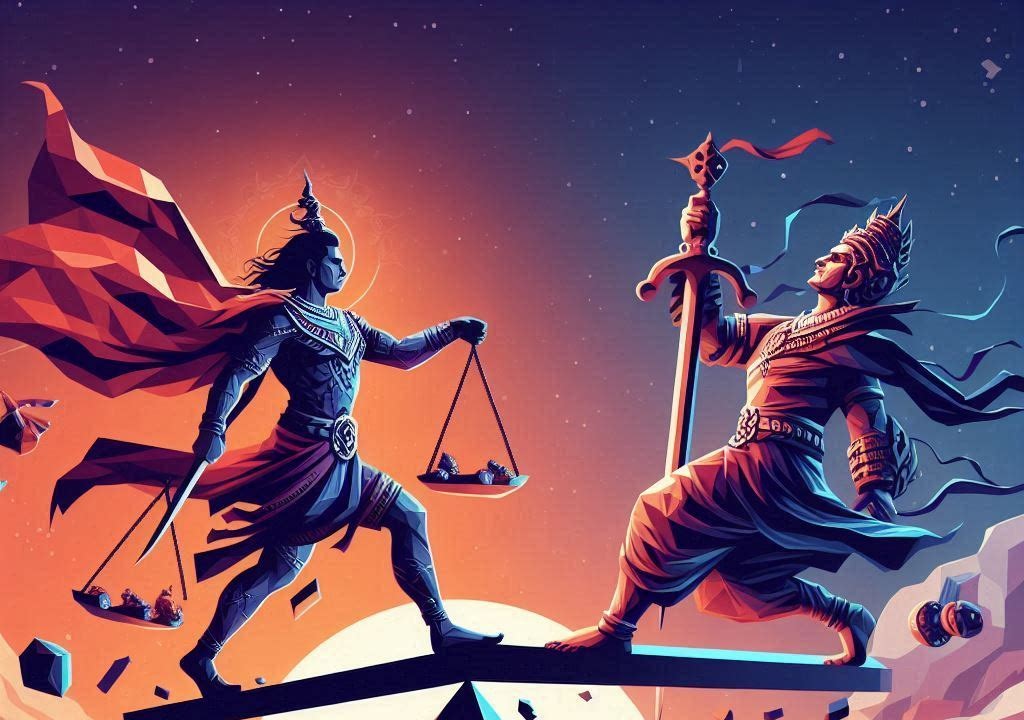Introduction
On the inaugural day of the epic Mahabharata battle, the Pandavas and the Kauravas prepared themselves for the impending clash. Both armies stood poised on the battlefield, their warriors equipped with an array of weapons and clad in formidable armor. The air was thick with tension and a palpable sense of anticipation, as each side braced for the monumental conflict that lay ahead.
Bhishma Pitamah
As the battle’s commencement loomed, Bhishma Pitamah, the venerable commander of the Kaurava forces, made a significant proclamation. He announced that the conflict was about to begin and extended an opportunity for any warrior to switch allegiances if they so desired. This pivotal moment allowed each warrior to reaffirm their loyalty, setting the stage for the imminent clash. Bhishma’s declaration underscored the gravity of the situation and marked a defining moment in the unfolding epic saga.
Yuyutsu
Following Bhishma’s proclamation, Yuyutsu, one of Dhritarashtra’s sons, made a momentous decision to defect. Although initially aligned with the Kauravas, Yuyutsu chose to join the Pandavas, thereby shifting the dynamics of the battlefield. His choice to switch sides highlighted the intricate nature of alliances and the profound individual decisions made in the chaos of war. This act underscored the personal convictions and moral dilemmas faced by warriors in the epic saga.
Blowing of Conch
The resonant sound of conch shells filled the air, accompanied by the solemn chanting of prayers, marking the commencement of the battle. The echoes reverberated across the battlefield, signaling the onset of the fierce conflict. Warriors from both the Pandavas and the Kauravas stood ready, poised to engage in combat, their resolve unwavering as they prepared to face their adversaries.
Conches Blown
Most of the warriors blew their transcendental conch shells (Shankhas) to start the Kurukshetra war.
Tasya sanjanayan harsham kuruvriddhah pitaamahah;
Simhanaadam vinadyocchaih shankham dadhmau prataapavaan.
His glorious grandsire (Bhishma), the eldest of the Kauravas, in order to cheer Duryodhana, now roared like a lion and blew his conch.
Tatah shankhaashcha bheryashcha panavaanakagomukhaah;
Sahasaivaabhyahanyanta sa shabdastumulo’bhavat.
Then (following Bhishma), conches and kettle-drums, tabors, drums, and cow horns blared forth quite suddenly (from the side of the Kauravas); and the sound was tremendous.
Tatah shvetair hayair yukte mahati syandane sthitau;
Maadhavah paandavashchaiva divyau shankhau pradadhmatuh.
Then also, Madhava (Lord Krishna), and the son of Pandu (Arjuna), seated in their magnificent chariot yoked with white horses, blew their divine conches.
Paanchajanyam hrisheekesho devadattam dhananjayah;
Paundram dadhmau mahaashankham bheemakarmaa vrikodarah.
Hrishikesha blew the “Panchajanya”, Arjuna blew the “Devadatta”, and Bhima, the doer of terrible deeds, blew the great conch, “Paundra”.
Anantavijayam raajaa kunteeputro yudhishthirah;
Nakulah sahadevashcha sughoshamanipushpakau.
Yudhishthira, the son of Kunti, blew the “Anantavijaya”; and Sahadeva and Nakula blew the “Manipushpaka” and “Sughosha” conches.
Drupado draupadeyaashcha sarvashah prithiveepate;
Saubhadrashcha mahaabaahuh shankhaan dadhmuh prithak prithak.
Drupada and the sons of Draupadi, O Lord of the Earth, and the son of Subhadra, the mighty-armed, all blew their respective conches!
Arjuna’s Dilemma
As the battle commenced, an unexpected turn of events unfolded. Arjuna, positioned between the two formidable armies, found himself gripped by a profound sense of unease. Gazing upon the soldiers arrayed on both sides, he was struck by the realization that he would be fighting against his own kin and cherished friends. This revelation filled him with sorrow and confusion, casting a shadow over his resolve. Uncertain about the righteousness of engaging in such a conflict, Arjuna turned to his charioteer, Lord Krishna, seeking guidance and answers to the turmoil within his heart.
The Teachings
Upon hearing Arjuna’s heartfelt dilemma, Lord Krishna began to impart the profound teachings of the Bhagavad Gita. Throughout their enlightening dialogue, Krishna elucidated the principles of duty (dharma), righteousness, and the intrinsic nature of life and death. He guided Arjuna to comprehend his role as a warrior, emphasizing the importance of performing one’s duty without attachment to the results. Krishna’s sagacious counsel helped Arjuna transcend his confusion, providing him with the clarity and resolve needed to embrace his path with unwavering determination.
Arjuna came to understand that his duty as a warrior required him to engage in the battle, irrespective of his personal emotions or the potential outcome. Krishna emphasized the importance of performing one’s duty without attachment to success or failure. He guided Arjuna to recognize that fulfilling his responsibilities was paramount, surpassing his own desires or fears. With Krishna’s wisdom, Arjuna realized the necessity of overcoming his doubts and standing up for what was right. Trusting in Krishna’s guidance and the path of righteousness, Arjuna picked up his bow and arrows, ready to face the challenges ahead with courage and determination. With Krishna by his side, Arjuna embarked on the righteous path, prepared to fulfill his role in the epic battle of the Mahabharata.
Devadatta
Having absorbed the profound teachings of the Bhagavad Gita from Lord Krishna and dispelled his doubts, Arjuna took a decisive step. He raised his conch shell, Devadatta, and blew it with resolute determination, signaling the commencement of the battle. This act marked the official beginning of the epic war between the Pandavas and the Kauravas, setting the stage for the monumental conflict that would unfold on the battlefield.
Uttar and Sweta
On the first day of the monumental battle, the battlefield witnessed the tragic loss of nearly 10,000 soldiers. Among the fallen were two valiant brothers, Uttar and Sweta, the sons of King Virata. Uttar met his end at the hands of Shalya, while Sweta was defeated by the formidable Bhishma. Their deaths underscored the brutal reality of war and the immense sacrifices made by those who fought in the epic conflict.






